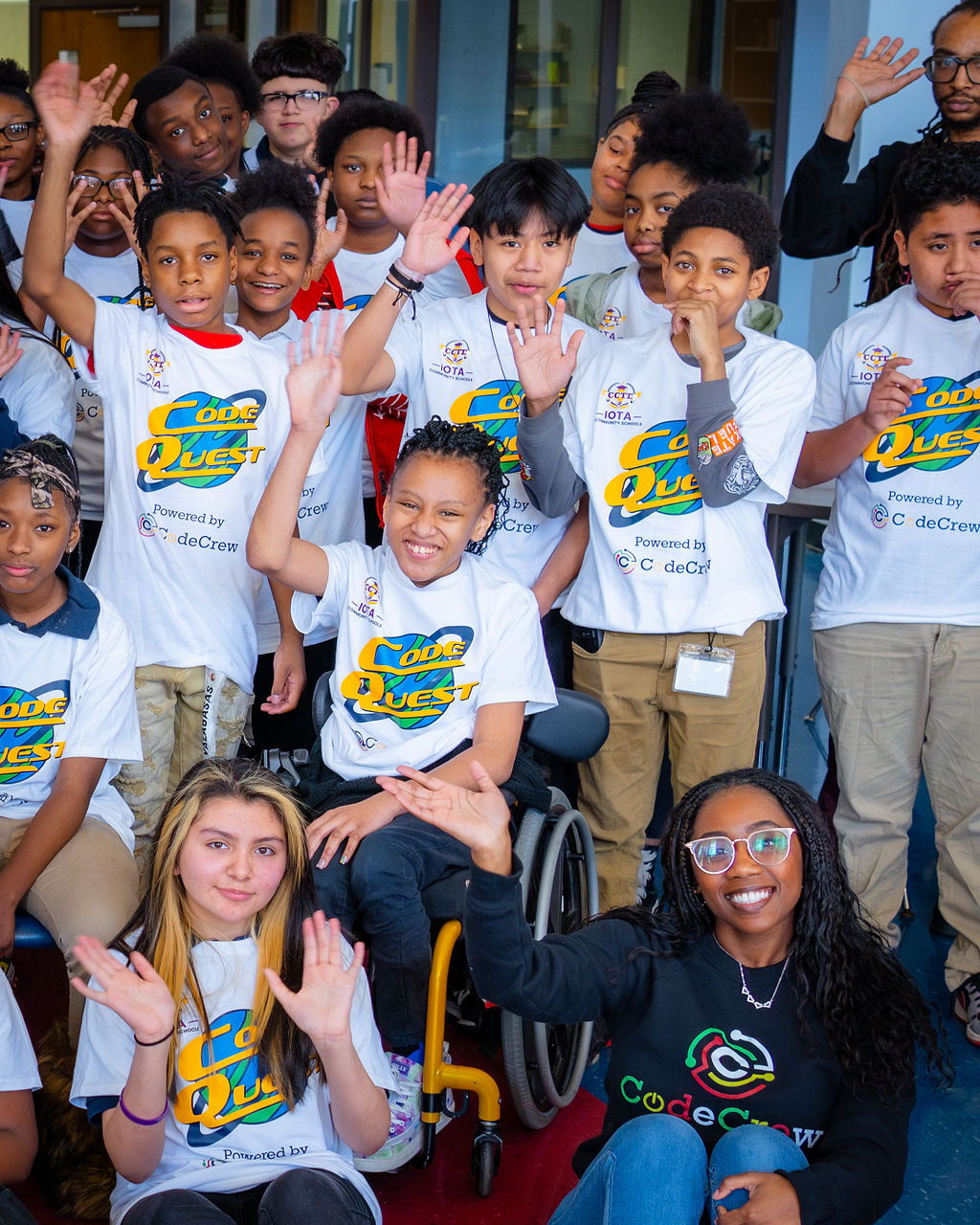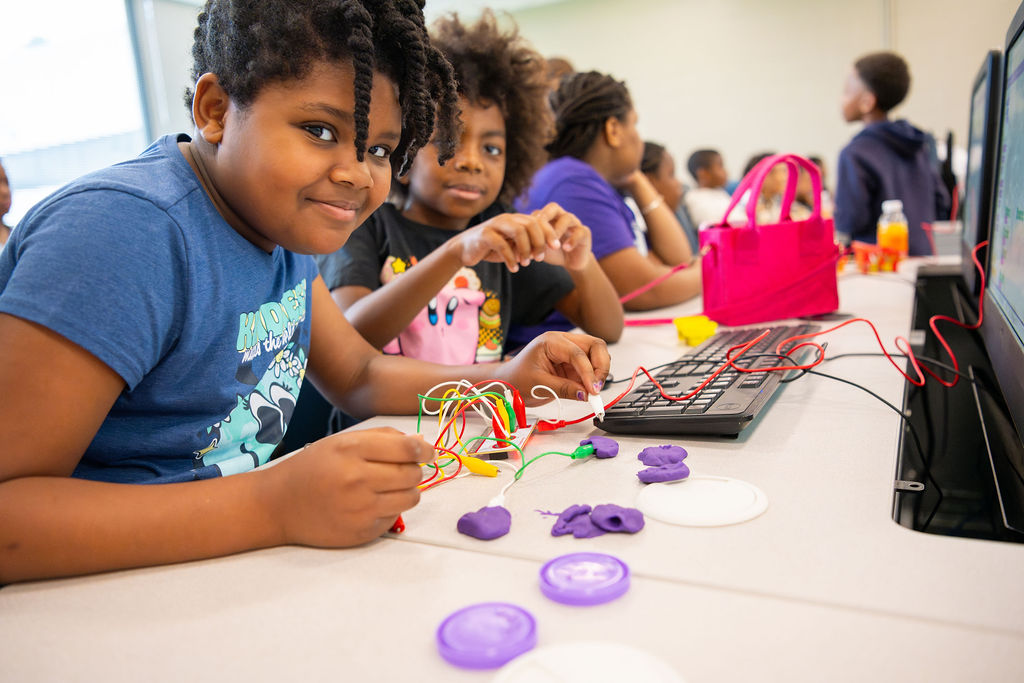
CodeCrew Closes the Tech Gap for Underserved Youth
CodeCrew is on a mission to empower underrepresented youth with the computer science skills they need to thrive in a tech-driven world. Since its founding in 2015, the Memphis-based nonprofit has introduced thousands of students—many from low-income, Black and Brown communities—to the kind of high-quality instruction usually reserved for more privileged schools. That includes everything from web development and robotics to cutting-edge AI and data science, equipping young people with real-world experience and the confidence to chart their own futures.
The mission of CodeCrew aligns closely with our own mission at Kars4Kids, which is why we were proud to name them a recipient of our small grant program. Their work directly addresses the equity gap in tech education, not only by serving students, but also by mentoring the educators who teach them. With innovative in-school electives, immersive summer camps, and supportive professional development, CodeCrew is building a diverse pipeline of tomorrow’s tech leaders—starting today.
We put some questions to CodeCrew Director of Development Ashley Weaver to find out more about this work.
Kars4Kids: Let’s begin with demographics. Who does CodeCrew serve? How many kids are you serving?
Ashley Weaver: CodeCrew serves a diverse group of students across Memphis and Tennessee, with a strong focus on underrepresented youth in tech, particularly Black and Brown students, girls, and students from low-income communities. Since our founding in 2015, we’ve served over 15,000 students, providing more than 420,000 hours of computer science instruction.
In the 2024-25 school year alone, 81% of our K-12 students qualified for free or reduced lunch, and 89% identified as part of an underrepresented group in tech.
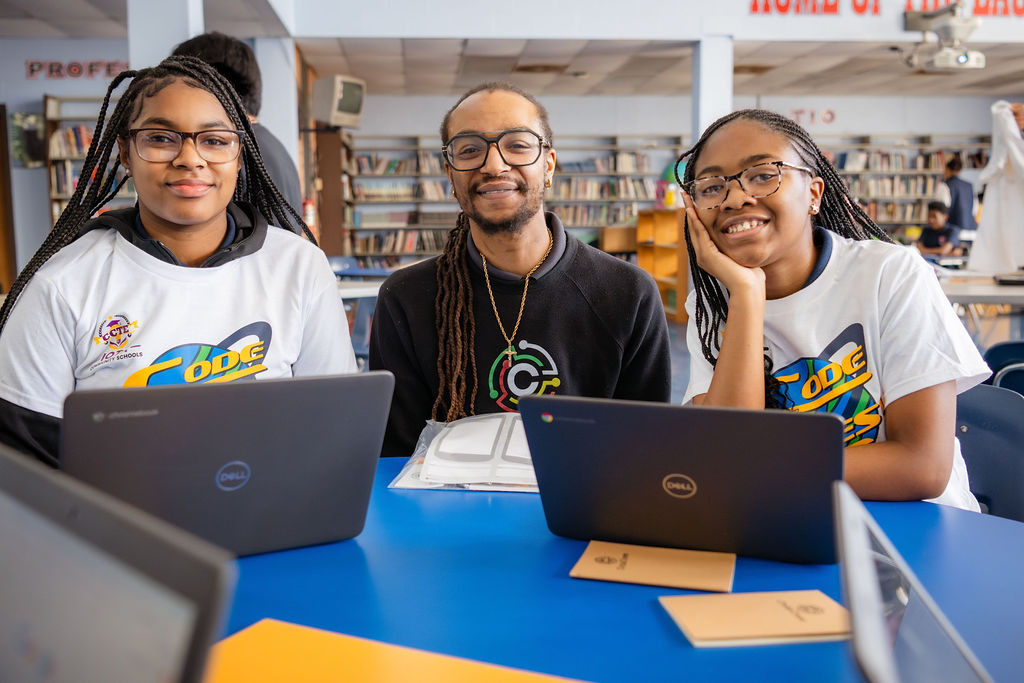
Kars4Kids: Tell us about your in-school electives. How does this work? Why is it needed? What are the benefits of integrating coding into the school day?
Ashley Weaver: Our in-school electives bring high-quality computer science instruction directly into classrooms during the school day. We partner with schools across Memphis and Tennessee to deliver engaging, standards-aligned courses like Web Development, Python, Mobile App Development, Robotics, VR, Gaming and AP Computer Science Principles, all with AI-integrated curriculum.
With Tennessee now requiring computer science electives as part of the K-12 curriculum, our work is more important than ever. Many schools lack the capacity or trained staff to offer these courses, so we step in to fill that gap, ensuring all students have access to meaningful computer science education.
We believe that the computational thinking students gain through coding—like problem-solving, logic, creativity, and resilience is valuable for all children, not just those who want to become engineers. Integrating coding into the school day ensures equity, early exposure, and the development of lifelong skills that benefit students no matter what career path they choose.
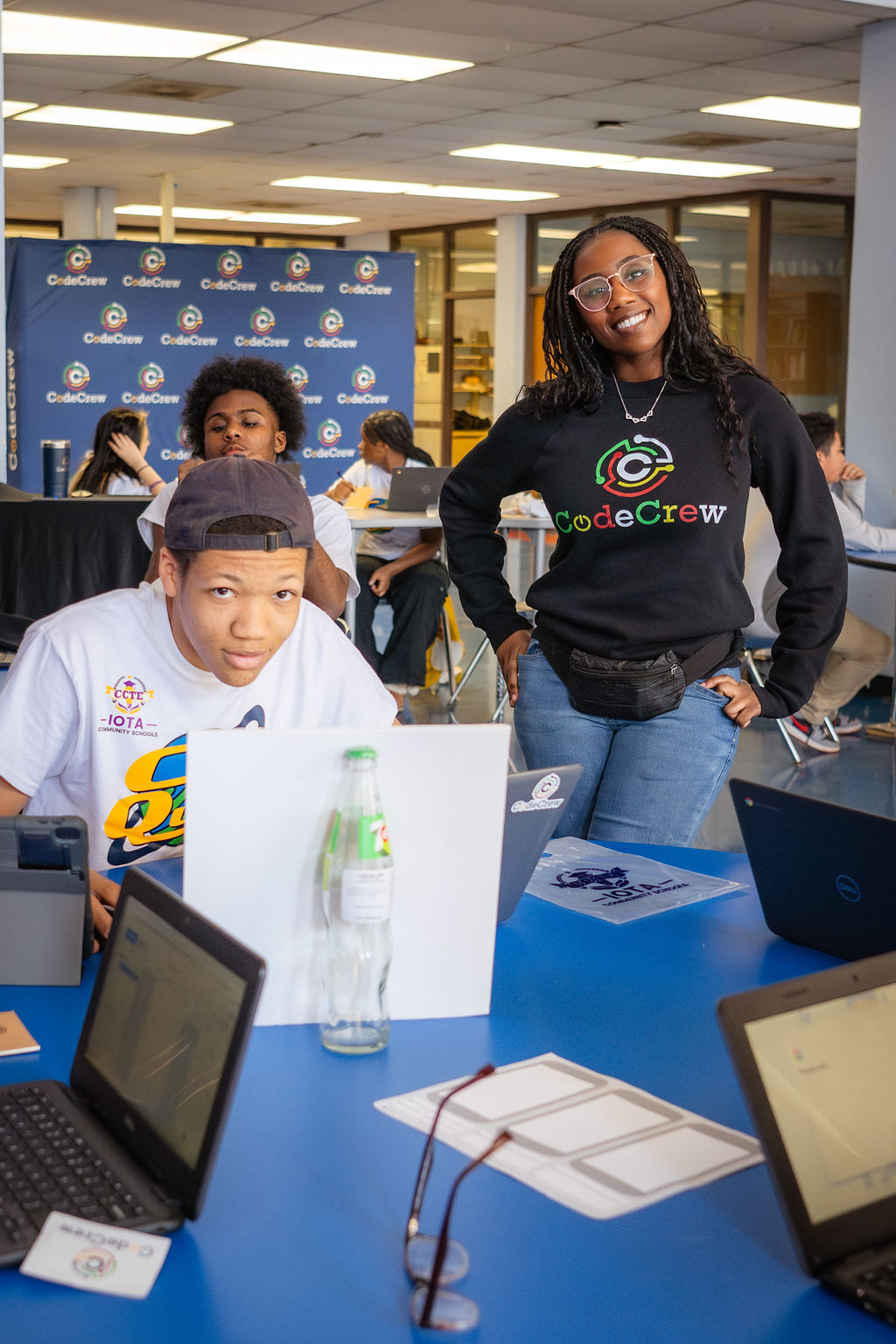
Kars4Kids: Aside from working with students, CodeCrew also mentors teachers and offers professional development, correct? What do teachers need most to help bring their students up to scratch (if you’ll excuse the coding pun) for our high-tech world?
Ashley Weaver: Yes, supporting teachers is a critical part of our work. Through our professional development programs, we train teachers how to teach coding confidently, even if they don’t come from a tech background. Teachers need practical, culturally responsive training and ongoing mentorship to feel equipped. We also provide curriculum resources and peer support networks to help them stay engaged. With Tennessee’s new computer science requirements, our teacher training ensures schools meet those standards while truly empowering students to learn in a fun and understandable way.
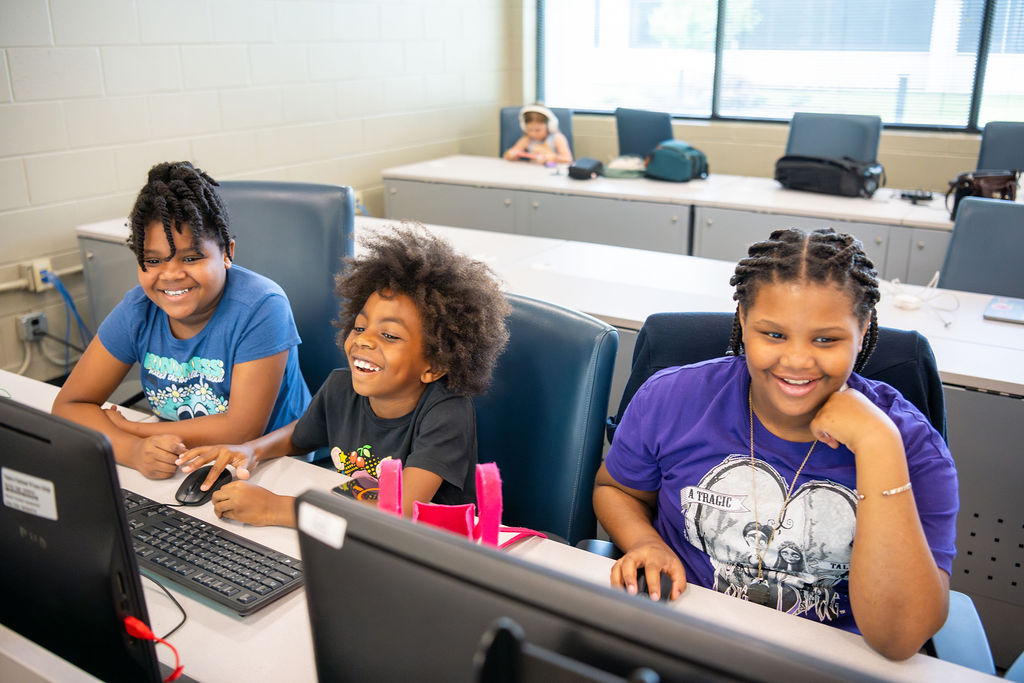
Kars4Kids: Can you give us an overview of your after-school programs? What can children expect to learn with CodeCrew in the hours after school?
Ashley Weaver: We offer age-appropriate, hands-on learning experiences from elementary through high school. Students learn a wide range of skills, including robotics, video game development, mobile app creation, and AI fundamentals. For younger students, programs like CubCoders introduce them to the building blocks of computational thinking through fun and engaging activities. For older students, it’s about going deeper into coding and real-world applications. Across all levels, we emphasize collaboration, problem-solving, and confidence-building.
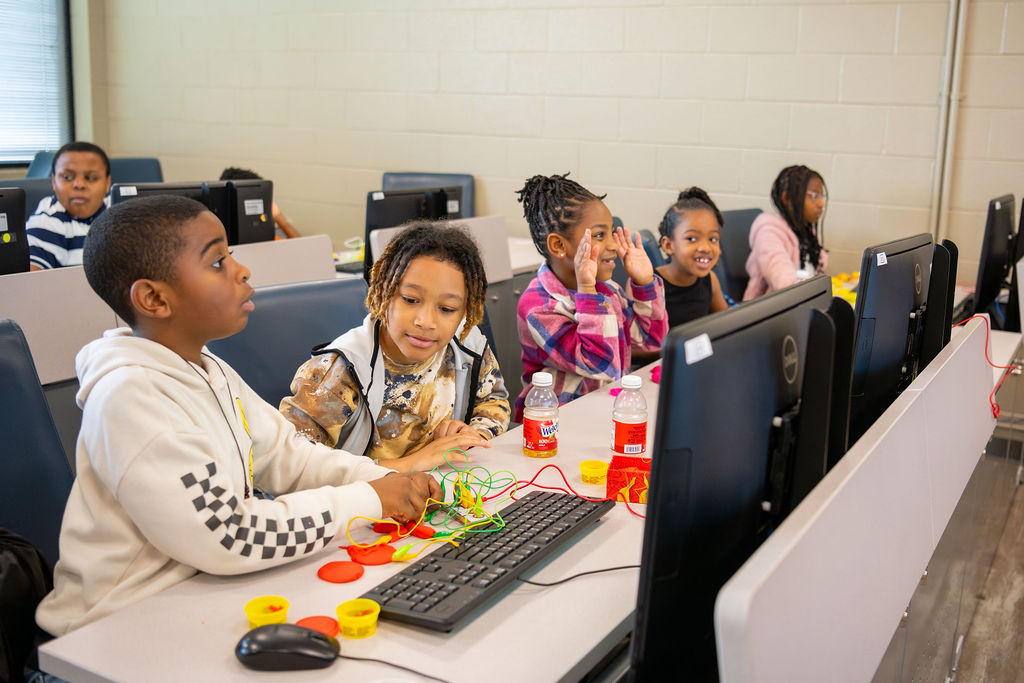
Kars4Kids: CodeCrew offers some amazing summer camp options. We see that kids can choose to go for as many of the four weeks as they wish, or go for all four weeks, with each week focused on a different technology. Can you tell us about that?
Ashley Weaver: Our summer camps are thoughtfully designed to meet students where they are, whether they join us for a single week or all four. Each week of camp is focused on a distinct technology or skill area, allowing students to complete a standalone project and leave with a tangible sense of accomplishment.
We made this strategic shift in response to the reality that many of our students aren’t always able to attend the full four weeks due to varying family schedules and obligations. By structuring each week as a self-contained learning experience, all participants, regardless of how many weeks they attend, gain confidence and a meaningful achievement they can be proud of.
For those who can participate all four weeks, this model offers a broader exposure to multiple technologies, providing a well-rounded foundation that culminates in our exciting end-of-summer hackathon. This approach not only increases engagement, but also ensures that every student experiences the empowerment that comes from building real tech skills.
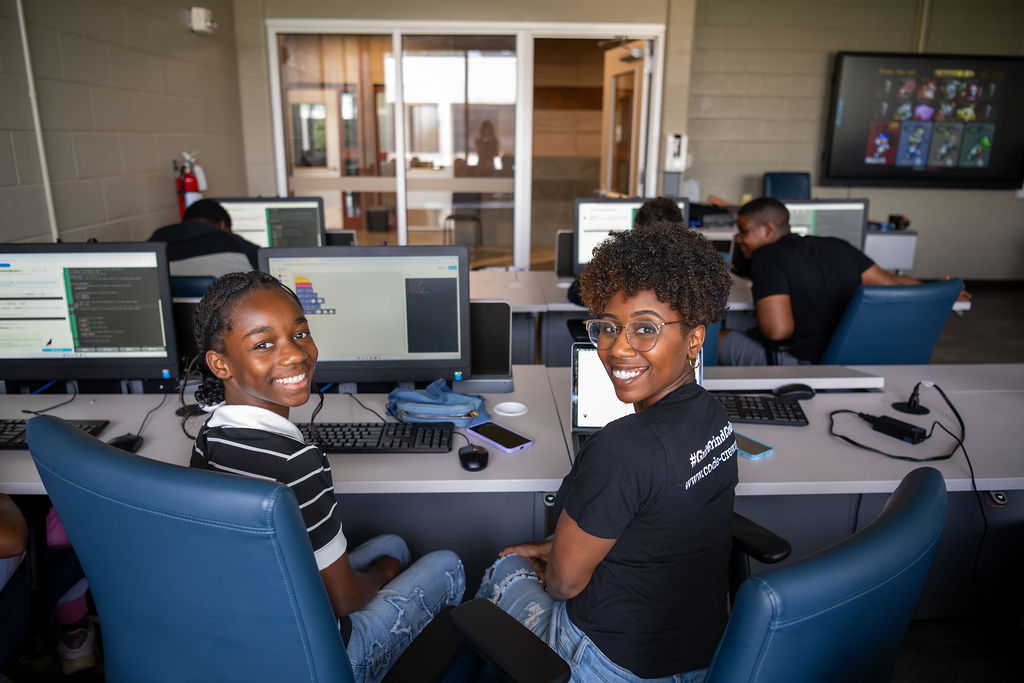
Kars4Kids: What can you tell us about your upcoming Data Lab program for high school students? What can students expect to learn in this after-school program? What do high school students need most to encourage them to continue on to pursue a degree or a career—or both—in computer science?
Ashley Weaver: CodeCrew’s upcoming Data Lab Spring 2025 program is an after-school initiative designed for high school students (grades 9–12) interested in exploring data science and machine learning. Hosted at CodeCrew HQ in Memphis, the program offers students the opportunity to engage with cutting-edge tools like Saturn Cloud, enabling them to analyze real-world data and develop predictive models. Through collaborative projects, participants will learn to code and apply their skills to solve practical problems, such as forecasting trends or monitoring environmental changes.
What Students Can Expect to Learn
The Data Lab program emphasizes hands-on, project-based learning. Students will:
- Gain proficiency in data analysis and machine learning techniques.
- Develop coding skills applicable to real-world scenarios.
- Collaborate with peers and industry professionals on meaningful projects.
- Explore the practical applications of data science in various fields.
This approach not only builds technical competencies but also fosters critical thinking and problem-solving abilities.
To motivate high school students to pursue further education and careers in computer science, several strategies can be effective:
- Early Exposure: Introducing students to computer science concepts during high school increases the likelihood of them majoring in the field in college.
- Real-World Applications: Demonstrating how computer science skills apply to various industries can make the subject more relatable and appealing.
- Mentorship and Role Models: Providing access to mentors and showcasing diverse role models in tech can help students envision themselves in similar roles.
- Inclusive Learning Environments: Creating supportive spaces that encourage participation from underrepresented groups can foster a sense of belonging and confidence.
By combining these elements, programs like CodeCrew’s Data Lab can play a pivotal role in guiding students toward successful futures in computer science.
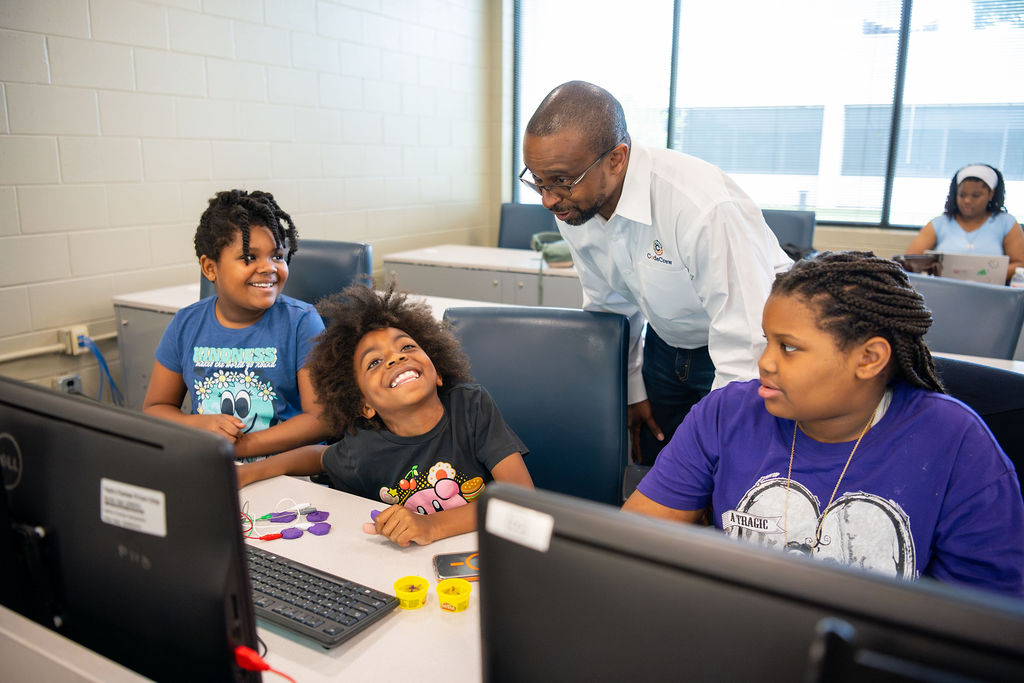
Kars4Kids: What is Hour of Code? What can kids learn and accomplish in a single hour? Is it about piquing their interest for more?
Ashley Weaver: Hour of Code is a global initiative designed to introduce students to computer science in a fun and accessible way. At CodeCrew, we host it as one of our weekend exposure events—a half-day experience where kids not only get hands-on with coding but also build community with other young people who are curious about tech.
Through simple, engaging activities like creating a game or animation, students get their first taste of coding. It’s often the moment they realize, “I can do this.” Beyond the skills, it’s a chance to collaborate, build confidence, and see themselves in tech. We design these events to be welcoming and empowering, and they often serve as a launchpad for deeper engagement in our year-round programs.
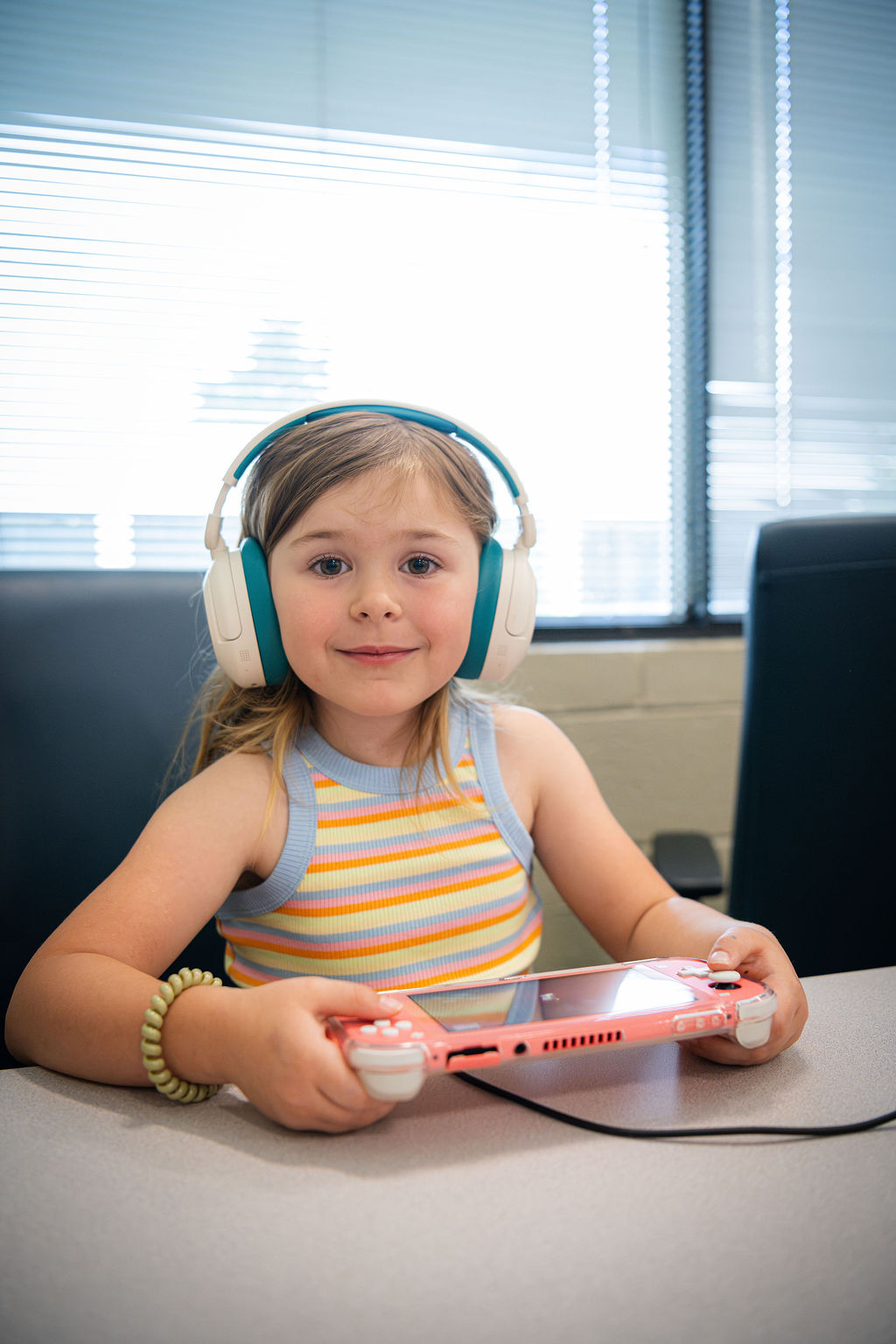
Kars4Kids: CodeCrew appears to be very focused on introducing students to AI—we haven’t seen that before with other youth development programs involved with computer science and coding. That would seem to qualify CodeCrew as an “early adopter.” Cool! How are you incorporating AI in your work with students? Why the special emphasis on AI?
Ashley Weaver: We believe that AI is the future of work and our students deserve to not just use AI tools, but understand how they work, how they can be misused, and how to build ethical AI systems themselves. We introduce AI concepts in a way that’s accessible and engaging, whether it’s through a web app challenge or exploring how algorithms work. We also host workshops for professionals and community members to help them use AI responsibly. By prioritizing early and ethical exposure, we’re preparing our students to lead in a tech-driven world, not just follow.
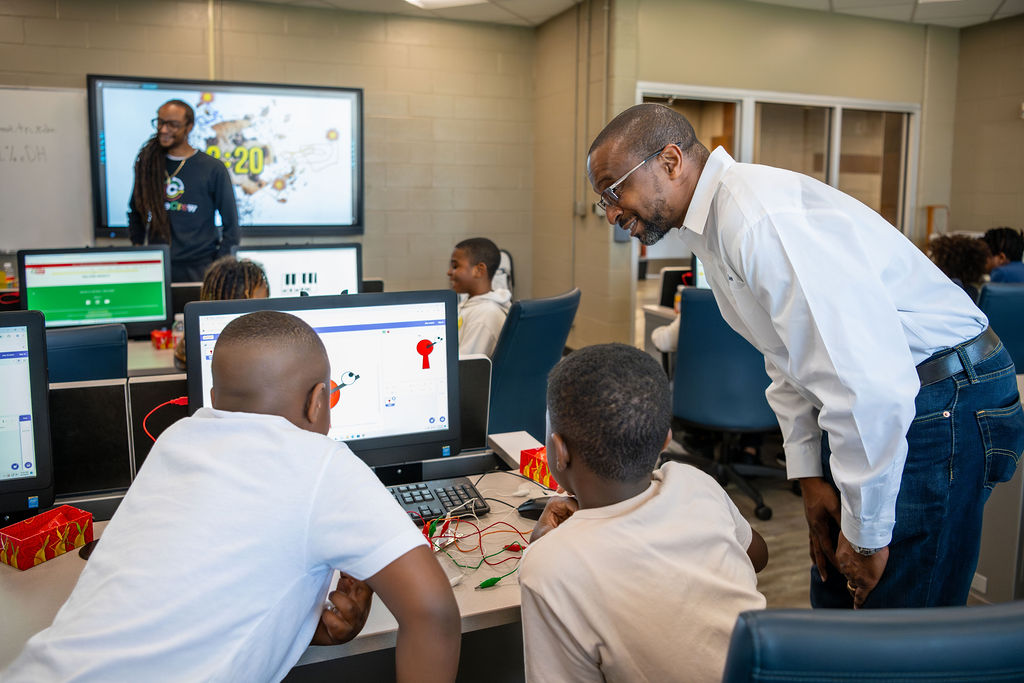
Kars4Kids: We were struck by this phrase on the CodeCrew website: “Since our founding in 2015, we have equipped over 15,000+ students with merit-based computer science skills, focusing on excellence and helping young people succeed in the tech-driven economy.”
Can you explain what is meant by “merit-based” computer skills? How on earth are you managing to serve so many students with such amazing, rigorous learning experiences?
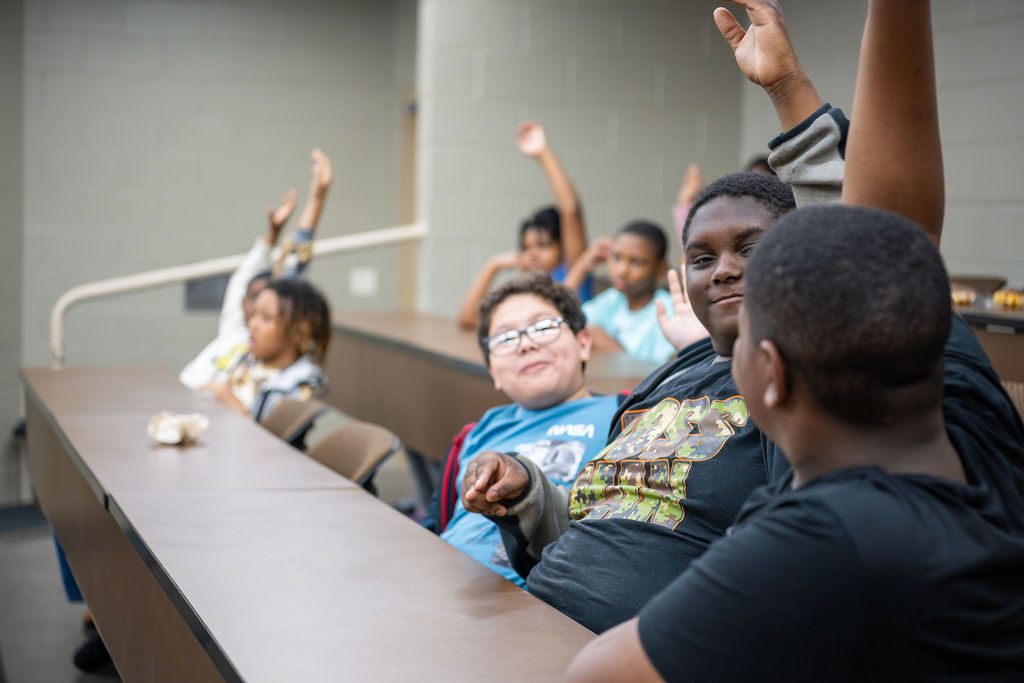
Ashley Weaver: By “merit-based,” we mean skills that are earned through real work and real learning, no shortcuts. Our students learn to code by building projects, debugging their own work, collaborating in teams, and applying concepts to real problems. It’s not just exposure, it’s deep learning. We manage to serve so many students because we are deeply embedded in the community, working with schools, community partners, and families to remove barriers like cost, transportation, and access to technology. We also benefit from an amazing team and a network of supporters who believe in this work.
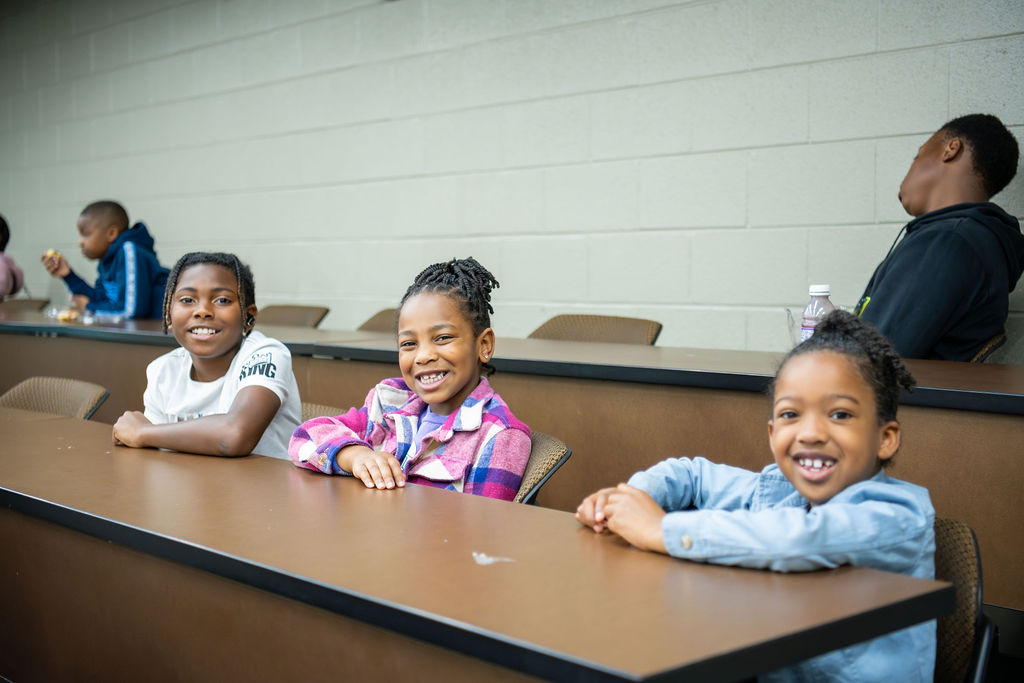
Kars4Kids: What’s next for CodeCrew?
Ashley Weaver: We’re continuing to scale our impact across Memphis and the Mid-South Region while deepening our focus on access and innovation. That means more AI and data science programming, expanding our partnerships, training and advising efforts, and preparing for our move into our new headquarters at Northside Square, a historic school site reimagined as a hub for tech equity. We’re also investing in workforce development through our Code School and internship programs. Ultimately, we want to ensure that every student, regardless of zip code, has the opportunity to thrive in the tech-driven economy.
